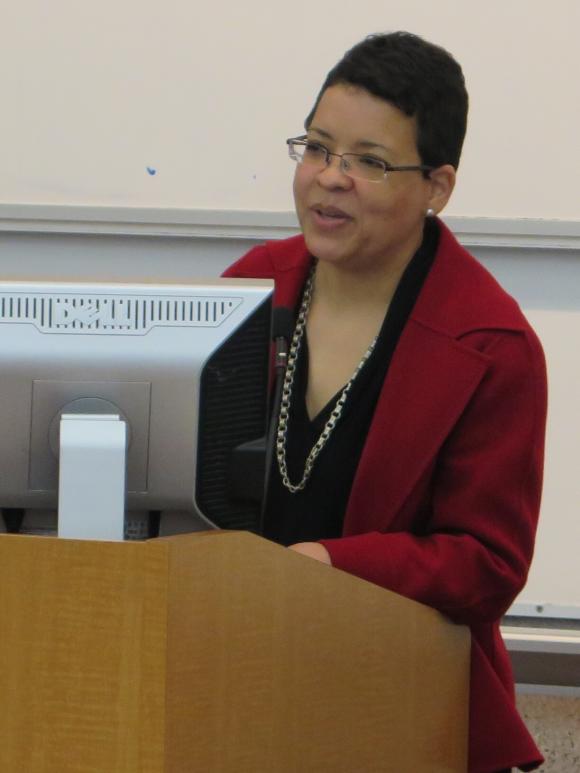
Ten Rutgers Law students, under the direction of Professor Elise Boddie, Founder & Director of the Inclusion Project, published a report this summer that looks at the devastating impact systemic and structural racism has had on Black and Brown communities during the COVID-19 pandemic.
According to the report, which is titled Snapshots of COVID-19: Structural Inequity and Access to Justice, “Black people account for more than 40% of the reported death counts in the state of Michigan, despite making up only 14% of the population. Wayne County (which includes the city of Detroit) has a black population of over 40% and records the second most registered cases of COVID-19 in the state of Michigan.” The report then goes on to posit contributing factors such as federal incompetence in the healthcare system that particularly impacts Black and Brown communities, working-class Black neighborhoods with higher rates of substandard housing, job availability, and the relative inability for many Black Americans to opt into work-from-home scenarios, increasing their exposure to the virus.
One of the concerns highlighted by the report is the mask bias in Black communities. “For example, in Miami, Florida, a Black male physician who was wearing a mask, was handcuffed by a police officer—apparently on suspicion of theft—as he was loading camping tents into a truck outside his home as part of his volunteer work with the homeless. Not wearing a mask also has caused problems. In Philadelphia, a Black man was physically removed from a public bus by law enforcement for failing to wear a mask, just a day after the city had implemented a mandatory mask policy for public transportation.”
In addition to outlining the social and economic distress factors and mask-wearing enforcement bias targeting Black communities, the report also points out the failure of prisons “to protect the persons who have been entrusted to their care. As documented in a report by the American Civil Liberties Union and the Prison Policy Initiative (PPI), ‘state responses [have] ranged from disorganized or ineffective, at best, to callously nonexistent at worst.’ As the report makes clear, ‘no state has done enough’ and ‘all states [have] failed to implement a cohesive, system-wide response.’”
Other issues were highlighted in the report, such as efforts by lawmakers to discern how public health inequities during the pandemic connect to structural racism through data collection; concerns regarding indigenous communities like the Navajo Nation which, as of May 18th, 2020, had the highest per capita infection rate in the country; educational challenges that have arisen during the pandemic; voting rights concerns especially relating to access to absentee voting; and fears for immigrant populations, especially undocumented immigrants, mixed-status families, DACA recipients, and undocumented students.
Each title in Section 2 of the report–Housing Rights and Homelessness, Immigrant Justice, and Prisoners’ Rights–holds a collection of information and resources meant to capture a series of “snapshots” across the COVID-19 response timeline.
Susan Feathers, Assistant Dean for Public Interest and Pro Bono, and Dina Nehme, a PhD candidate at RU-N Division of Global Affairs, joined with Professor Boddie in publishing the report and providing further insight into the research done by these law students.
To read the report in full, please click here to download it.